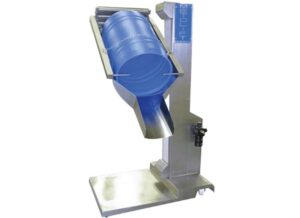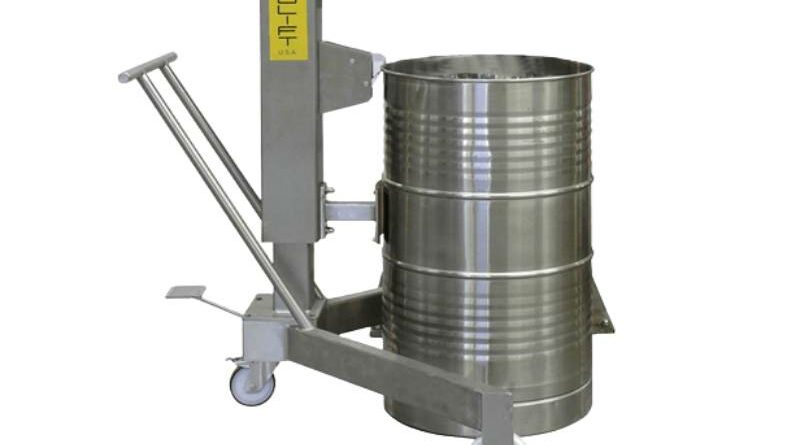Why Bulk Material Handling Equipment Is Essential for Industries?
In today’s fast-paced industrial landscape, efficiency is key. Industries that deal with large volumes of raw materials, intermediate products, or finished goods depend heavily on the tools and machinery used to transport, store, and process these materials. Bulk material handling equipment is one of the most critical components in ensuring that industries operate smoothly and effectively.
This equipment, which includes conveyors, cranes, hoppers, elevators, and various types of handling systems, is designed to automate and optimize the movement and management of bulk materials. But why is it so essential? Let’s dive into the importance of bulk material handling equipment and its role in industrial operations.
Improved Efficiency and Productivity
One of the primary benefits of bulk material handling equipment is its ability to improve overall operational efficiency. Manual handling of bulk materials, such as chemicals, ores, grains, and other large-volume products, is time-consuming and prone to human error.
Automation through equipment such as conveyors, pneumatic systems, and bucket elevators reduces the need for manual labor, allowing employees to focus on more strategic tasks. By streamlining the movement of materials from one area to another, bulk material handling systems help industries minimize downtime, speed up production processes, and improve throughput.
In addition to improving efficiency, automation enables industries to handle larger quantities of materials in less time, which directly increases productivity. With a more streamlined approach to material handling, companies can meet higher demand without sacrificing quality or performance.

Safety Benefits
Safety is always a priority in industrial environments, and bulk material handling equipment plays a crucial role in ensuring a safer workspace. Manual handling of bulk materials can expose workers to a variety of risks, including physical strain, injury from lifting heavy loads, or exposure to harmful chemicals or substances.
By utilizing the right equipment, such as enclosed conveyors or automated systems, industries can minimize human interaction with hazardous materials, reducing the risk of accidents and injuries. Bulk material handling systems can also be equipped with sensors and safety features to detect potential hazards or malfunctions, providing an added layer of protection for workers and equipment.
Furthermore, bulk material handling equipment is designed to comply with industry safety standards, ensuring that companies meet regulatory requirements and avoid potential fines or penalties.
Cost Savings and Return on Investment (ROI)
While bulk material handling equipment requires a significant initial investment, the long-term savings it offers far outweigh the costs. By automating material handling processes, industries can reduce labor costs and minimize material waste, leading to greater profitability.
For example, automated systems like conveyors and storage silos can ensure more precise handling, reducing the chances of spills, product degradation, or misplacement. In turn, this decreases the need for costly cleanup or replacement of lost materials, contributing to a more cost-effective operation.
In addition, bulk material handling systems are built to last. With regular maintenance and proper care, the equipment will continue to operate effectively for many years, providing a high return on investment.
Enhanced Storage and Inventory Management
Bulk material handling equipment also plays a significant role in inventory management. In industries that store large quantities of raw materials or products, organizing and managing inventory can be challenging. However, with the right equipment, companies can efficiently store and retrieve materials, ensuring that inventory levels are kept at optimal levels.
For example, storage systems like bulk bins, silos, and hoppers can be customized to accommodate various types of bulk materials. These systems allow materials to be stored in a compact and organized manner, making it easier to track stock levels and reduce the risk of overstocking or stockouts.
Automated inventory systems can also integrate with bulk material handling equipment to provide real-time updates on inventory levels, helping businesses plan and manage procurement schedules more effectively.
Flexibility and Scalability
Bulk material handling equipment is designed to be highly flexible and scalable, allowing industries to adapt to changing demands and evolving production processes. Whether you’re handling raw materials in a mining operation, transporting grains in agriculture, or processing chemicals in manufacturing, bulk material handling systems can be tailored to suit the specific needs of your industry.
Moreover, as production volumes grow, bulk material handling systems can be easily scaled to meet increased demand. Additional conveyors, cranes, or storage units can be integrated into existing systems, providing a seamless transition as your business expands.
This flexibility and scalability ensure that industries can continue to operate efficiently, even as market conditions or production requirements change over time.
Environmental Impact and Sustainability
Environmental sustainability is becoming increasingly important in today’s industrial sector. Bulk material handling equipment can help companies reduce their environmental impact by minimizing waste, energy consumption, and emissions.
For instance, pneumatic conveying systems or enclosed conveyors can help reduce material spillage, preventing waste and pollution. Some systems are designed to use less energy, thereby contributing to a lower carbon footprint. Additionally, bulk material handling equipment is often built with materials that are recyclable or designed to withstand harsh environmental conditions, ensuring that the equipment remains functional for extended periods without contributing to landfill waste.
By integrating sustainable practices into their material handling processes, companies not only help protect the environment but also improve their reputation and appeal to environmentally-conscious customers and investors.
Improved Quality Control
In industries that require stringent quality control, such as food processing, pharmaceuticals, or chemicals, bulk material handling equipment is essential for maintaining consistent product quality. Automated systems help ensure that materials are handled and processed according to strict specifications, reducing the likelihood of contamination or defects.
For example, materials can be transported using systems designed to minimize exposure to external contaminants, such as dust or moisture, which can negatively affect product quality. Additionally, material handling equipment can be equipped with sensors or monitoring systems that detect changes in temperature, humidity, or material properties, ensuring that all materials are kept within optimal conditions.
This level of precision and control is vital for industries that must meet regulatory standards and deliver high-quality products to customers.
Optimized Workflow and Space Utilization
Bulk material handling equipment helps optimize workflow within industrial facilities by reducing the time spent transporting materials from one area to another. By using conveyors, elevators, or cranes, companies can move materials efficiently throughout the production process, reducing bottlenecks and delays.
In addition, bulk material handling equipment can help optimize space utilization within a facility. For instance, vertical storage systems or automated retrieval systems can make better use of available space, allowing companies to store more materials in a smaller footprint. This not only increases storage capacity but also frees up valuable floor space for other essential operations.
Conclusion
Bulk material handling equipment is a cornerstone of modern industrial operations, providing numerous benefits to industries across the globe. By improving efficiency, enhancing safety, reducing costs, and supporting sustainability efforts, bulk material handling equipment plays an essential role in ensuring that industries remain competitive and productive in an ever-changing market.
For industries looking to streamline their operations and keep up with increasing demand, investing in the right bulk material handling systems is not just a necessity—it’s a strategic decision that can drive long-term success. Whether you’re looking to optimize workflow, improve quality control, or enhance inventory management, the right equipment can make a world of difference.




